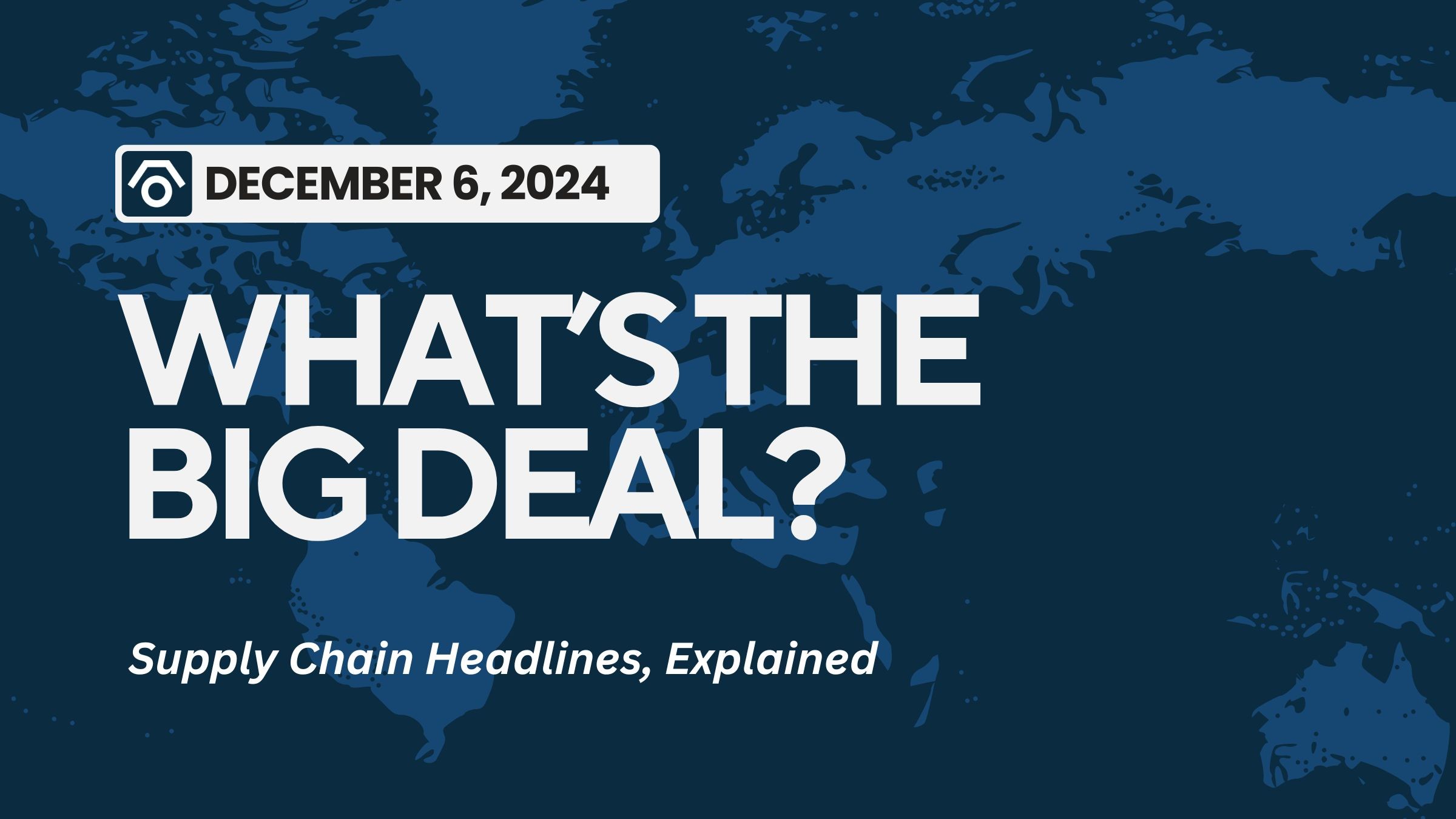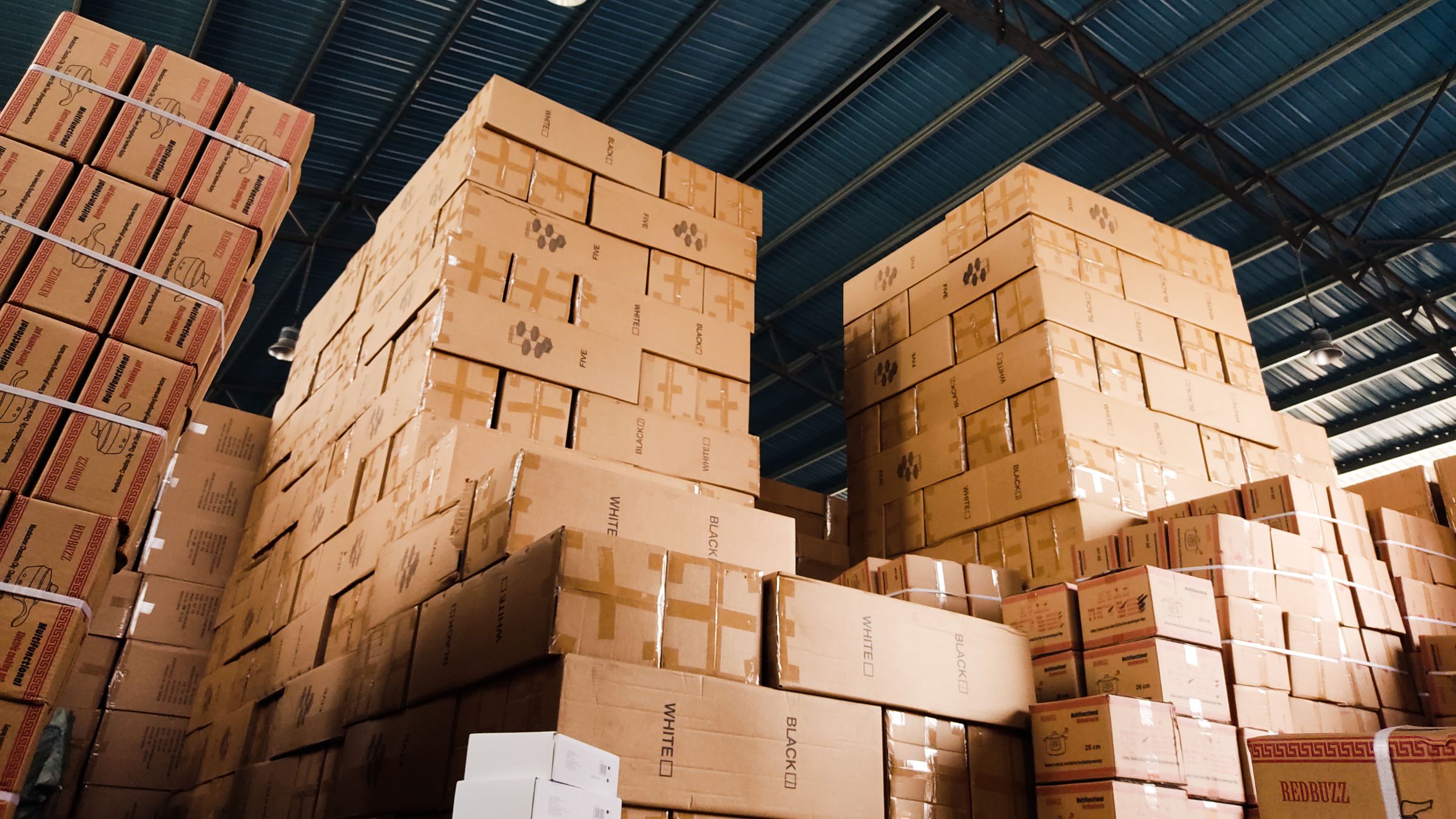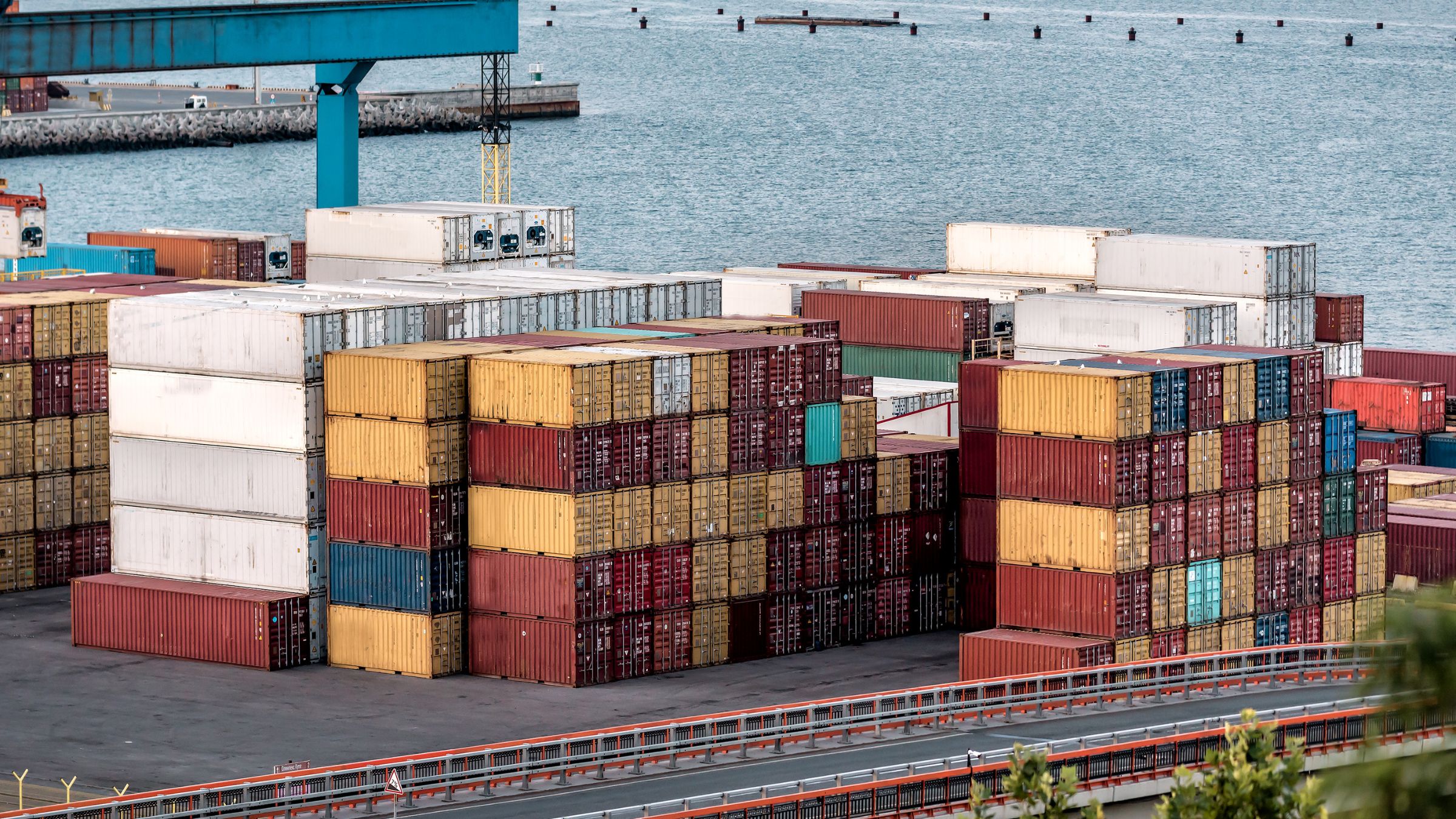Industry
What’s the Big Deal? Dec 6th Supply Chain News
UPS and FedEx bringing their A-game, trucking jobs back in gear, and tariff tantrums continue

Abdul
·
Dec 6, 2024
·
5 min read

Supply Chain News: The stories hitting supply chain this week
Welcome back to “What’s the Big Deal?”, where we break down the most compelling stories in logistics and supply chain. This week, we’re diving into stories that showcase the resilience, innovation, and evolving dynamics shaping the industry. Here’s what’s making waves:
The big deal this week:
UPS and FedEx Are Bringing Their A-Game (Weather Gods Willing)
Trucking Jobs Are Back in Gear—Will the Growth Stay in the Fast Lane?
Holiday Shipping Gets a Head Start—No Rushing Required (Mostly)
Flipkart Goes Green: LNG Trucks and Sustainable Dreams
Tariff Tantrums: Racing the Clock Before Costs Climb
UPS and FedEx Are Bringing Their A-Game (Weather Gods Willing)
As the holiday season hits its stride, all eyes are on UPS and FedEx to deliver (literally). Both logistics giants have assured retailers and consumers they’re ready to handle the Black Friday and Cyber Monday fallout. From next-day packages to that last-minute gift you swore you ordered earlier, they’re rolling out their best strategies to ensure on-time delivery—so long as the weather cooperates.
But here’s the kicker: this isn’t just about moving packages. Behind the scenes, advanced forecasting tools, improved route planning, and a leaner, meaner logistics game are making all the difference.
What’s the Big Deal?
Think of the holiday season as the logistics Super Bowl. For supply chain professionals, it’s a masterclass in efficiency, adaptability, and teamwork. For retailers, an on-time delivery can mean the difference between repeat customers and lost revenue. And for consumers? It’s about making sure that must-have gadget or perfect gift shows up when it’s supposed to—without the dreaded “delayed delivery” email.
In short, UPS and FedEx are setting the bar high this holiday season. If they succeed, it won’t just be good news for your presents; it’ll redefine how logistics handles future peak seasons. Here’s hoping the weather gods are feeling generous!
Read the full story: Yahoo Finance
Trucking Jobs Are Back in Gear—Will the Growth Stay in the Fast Lane?

After over a year of stagnant growth, the trucking industry got a much-needed boost in November with a notable increase in job numbers. This marks the first significant uptick in over 12 months, and while it’s too early to declare a full-blown trend, it’s a promising sign for an industry that’s been grappling with labor shortages. From long-haul drivers to last-mile couriers, this growth hints at a sector gearing up for increased freight activity—just in time for the holiday crunch.
What’s the Big Deal?
For supply chain managers, this signals potential relief in areas where labor shortages have created bottlenecks. Shippers can expect improved capacity, possibly even stabilizing freight costs if this trend holds. And for consumers? Fewer delays in everything from online orders to grocery restocking.
The big question remains: is this a temporary reaction to holiday demand or the start of sustained industry growth? Either way, companies should seize the opportunity to optimize their routes and tap into the fresh wave of labor.
See the data here: FreightWaves
Holiday Shipping Gets a Head Start - Early Peak Season

Retailers and manufacturers are flipping the script on traditional shipping timelines by importing holiday goods earlier than ever. This preemptive approach helps dodge global shipping disruptions but has also left the peak shipping season looking, well, not so peak-y. Instead of the usual December madness, warehouses saw an influx months earlier.
What’s the Big Deal?
For logistics professionals, this shift highlights the importance of agility. With supply chains less predictable than ever, early imports offer a buffer against delays—but they also require better inventory management and storage solutions. Shippers benefit from smoother operations, while consumers see fewer empty shelves and “out of stock” notifications.
The broader impact? A fundamental change in how the logistics calendar operates. Companies need to plan year-round for peak-like demand, making resilience a critical factor moving forward.
More on this trend here: Wall Street Journal
Flipkart Goes Green: LNG Trucks and Sustainable Dreams
India’s Flipkart is making waves in sustainable logistics, partnering with GreenLine Mobility Solutions to deploy 25 LNG-powered trucks. This move reflects a growing global push for eco-friendly logistics operations, aligning with both regulatory pressures and consumer demand for greener practices.
What’s the Big Deal?
This isn’t just a win for the environment; it’s a strategic move for Flipkart and similar companies. Green logistics not only reduce carbon footprints but also appeal to eco-conscious customers. Shippers and logistics teams are watching closely to see how these trucks perform, especially as governments worldwide push for decarbonization.
For consumers, this means their online orders might soon come with a side of sustainability. The takeaway? Logistics leaders should prioritize investments in alternative fuels and eco-friendly technology to stay competitive.
Check it out here: Reuters
Tariff Tantrums: Racing the Clock Before Costs Climb

Exporters from China, Canada, and Mexico are racing against time, front-loading shipments to the U.S. in anticipation of new tariffs. The result? Bustling ports, stretched logistics teams, and a temporary boost in freight demand. But what happens when the rush is over?
What’s the Big Deal?
For supply chain professionals, this is a masterclass in adapting to uncertainty. Front-loading helps dodge immediate costs but can strain port operations and lead to congestion. Shippers might benefit from short-term savings, but long-term implications include potential overstocking and warehousing headaches.
For consumers, this could mean higher prices if tariffs take effect. The broader lesson? Businesses must diversify their supply chains and maintain agility to navigate political and economic shifts effectively.
Read the full story: Financial Times
What Does It All Mean?
This week’s stories highlight one thing: the supply chain world is anything but static. Whether it’s adapting to new shipping timelines, embracing sustainability, or bracing for tariffs, the need for flexibility, innovation, and foresight has never been greater.
Key Takeaways for the Industry:
Invest in Resilience: Whether it’s early imports or tariff prep, the ability to pivot is essential.
Sustainability Is Non-Negotiable: Green logistics isn’t a trend; it’s the future.
People Still Matter: Rising trucking jobs signal hope, but a labor-focused strategy is critical for long-term growth.
Tech Leads the Way: From predictive analytics to alternative fuels, technology remains the backbone of supply chain evolution.
Whether you’re a logistics pro or just someone waiting on a package, these stories remind us how interconnected—and crucial—supply chains are to our everyday lives. Until next week, keep your supply chain strong and your spirits high!
About Cartage
Cartage delivers AI-managed transportation services to small and medium sized shippers across North America. Explore a future of logistics you don't have to manage at www.cartage.ai.
Put your freight operations on autopilot.
Try AI-managed transport today







